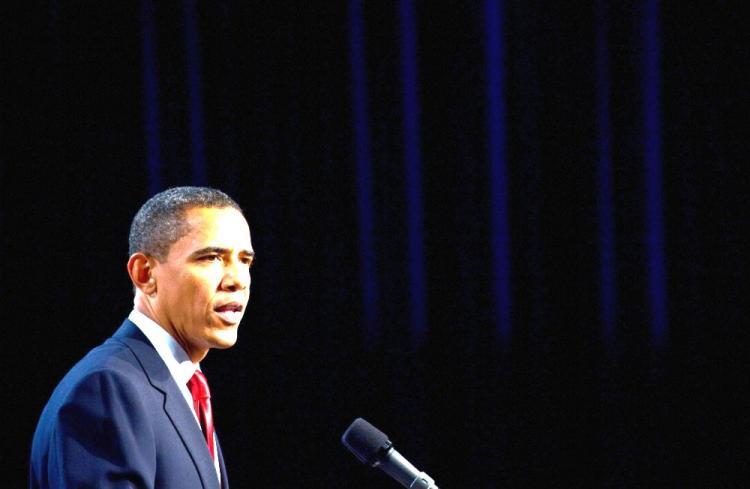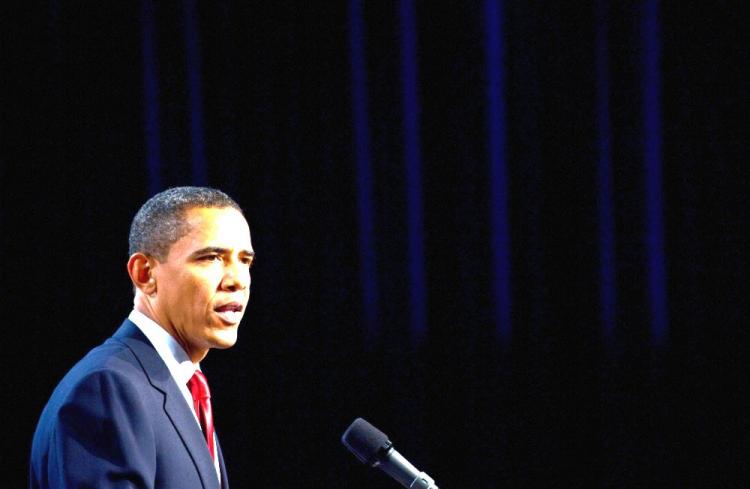NEW YORK—President Obama said the bilateral relationship between the United States and China will “shape the 21st century” in a speech Monday.
However, critics say Obama puts the U.S. in a “modest posture” and he is not serious about addressing human rights issues.
Differences need to be put aside to find “common ground necessary to meet our common challenges,” the president said at the first meeting of a two-day strategic economic dialogue between the two countries in Washington.
“[We] strongly believe that the religion and culture of all peoples must be respected and protected, and that all people should be free to speak their minds,” Obama said. “And that includes ethnic and religious minorities in China, as surely as it includes minorities within the United States.”
He also noted that the U.S. was not seeking to impose these freedoms on China, and proposed to work together to alleviate the financial crisis, create broader prosperity around the globe, produce eco-friendly energy, stop nuclear weapon proliferation, and create shared security.
On talking cooperation, Obama said no one nation can meet the challenges of the 21st century on its own, “Nor effectively advance its interests in isolation.”
Obama said that through increasing the ties of the two countries’ military and sharing of intelligence, the United States and China can diminish disputes, terrorist networks and suffering in Darfur and Sudan.
Problems With Address
“The problem with Obama’s speech is that he addresses China’s rulers as if they are representatives of the Chinese people,” said Perry Link, emeritus professor of East Asian Studies at Princeton University, specializing in modern Chinese literature, in an interview.
“What they actually represent is a ruling group who took power by force 60 years ago and maintains power by force today. He has, of course, no choice but to deal with this group. But it would be better—for both China and America—if it were more clear that the Chinese government and the Chinese people are not the same thing.”
The Obama administration has previously announced that the United States will subordinate human rights concerns in China to other interests.
During Clinton’s first trip to China as U.S. Secretary of State in February, she said, “Our pressing on those [human rights] issues can’t interfere on the global economic crisis, the global climate change crisis and the security crisis.”
Gordon Chang, author of “The Coming Collapse of China” and a columnist at Forbes business magazine, said that Obama is putting the U.S. in a “modest posture.” Obama’s statement of not imposing human rights in China is a “clear signal to Chinese that we are not serious about these.”
He said that since Obama wants China to continue to buy U.S. treasury obligations, and stop Iran and North Korea from obtaining nuclear weapons, the Obama administration has put the United States in a lower position and put China in a higher position, although the United States is stronger.
“I think that we should basically use our economic leverage. We should cut these dialogues. Essentially, we should just treat China as a normal country. And we don’t need to beg them; they need our treasury obligations anyways,” said Chang.
Meeting Attendees
Other attendees at Monday’s meeting were U.S. Secretary of State Hillary Clinton, U.S. Secretary of Treasury Tim Geithner, Jon Huntsman, President Obama’s nomination of U.S. ambassador to China, Chinese Vice Premier Wang Qishan and Chinese State Councilor Dai Bingguo.
The economic summit is a continuation of a meeting between Obama and Communist Party chairman Hu Jintao in London, April 1. Since then, Obama’s goal has focused on the promotion of a “positive, constructive, and comprehensive” relationship between the two countries.
The president and first lady hosted a White House reception for the Chinese ambassadors at the end of the day.
As agreed earlier in April with Hu Jintao, Obama said that he will make his first visit to China soon. The date remains undecided.





